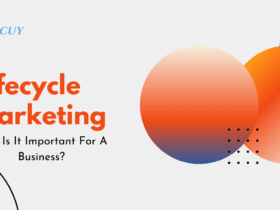Search engine optimization determines your brand’s position on the search engine results page (SERP) when someone searches for a relevant keyword. There are things you can do to improve your position. Here are some tips.
The best thing about SEO is that it is a fair game. If you know how to put the right amount of work at the right place and at the right time you will make drastic progress. It’s a tooth-and-nail battle out there among thousands of businesses fighting over the first 8-10 spots on the first page of search results. With a lot of work and a little luck, you can earn a place on the 1st page of Google search results for your business. This post will discuss different approaches you can take to improve your SEO strategy and the ways in which you can build a strong digital presence for the people who are looking for what you can offer.
Set goals
The general notion has always been that SEO efforts are unquantifiable and the results are intangible. Well, that does not hold true anymore. With tools like SEMrush and Google Analytics, you can quantify every metric related to search engine optimization and your efforts around them.
Hence, it is possible to set well-defined goals and there are ways to measure your progress toward them. For instance, if you want to rank in the top five for a specific keyword and you currently rank at 21 for the same, you can set an initial goal to bring that rank up to 10 in two weeks’ time.
Now, in order to achieve that goal, you would have to achieve certain other sub-goals like increasing the number of backlinks to a certain webpage to ‘N’ or creating ‘n’ number of guest posts in a stipulated time.
Achieving the smaller goals will eventually lead you to your final goal of getting a place within the top 5 on SERP for a specific set of keywords. More doors will open for you from that point – you will be able to generate more traffic to your website, and you may try to drive traffic through transactional keywords, which may eventually lead to increased sales.
Also Read – 9 Things You Need to Know Before Starting a Business
Get ready to scale
Regardless of what you are selling or promoting, there is bound to be some competition at the SERP level. Unless you have an already well-established online presence, so much so that your brand is recognized by name by a very large number of people, you will have to fight your way up the SERP for each keyword and search term.
You can start small with a quality blog and some educated modifications to your website. But after one point you will need a stream of content linking back to your website or your blog pages. That is where things get quantity-driven and the need to scale arises.
A small SEO team with in-depth knowledge of the game can bring you to the first page, but from that point onwards it’s a two-way game. You need to marry quality with quantity in order to beat the competition. You need blog posts that truly speak to your audience, hit them where it matters, and engage them. But you also need tons of posts on different sites that talk about you to some degree. You need links scattered around the internet that point to you, while also ensuring that the sites containing your links aren’t too trashy.
Anyone can set up a site using a free website-making tool, but making it rank on SERPs requires a whole different strategy. You must be prepared for this sort of grind and allocate a budget to pay people who can run this machinery for you.
Capture the intent
There are a bunch of paid and free tools that will help you get your hands on the right set of keywords. It is no rocket science either to judge the keyword strength and choose keywords that are neither too hard nor too irrelevant. But keyword research and identification is just one-quarter of the job. What you need is content that provides the intended answer.
Search intent is something that Google has taken very seriously over the last few years. In fact, it is the most driving factor at this point, as far as SEO goes. When a searcher types in “SEO strategies”, there could be multiple intents. Maybe they are looking for strategies to write an article about it, or maybe they are just doing some research for a presentation, or maybe they are actually looking for consultants that can help them with SEO strategies. Now, that is the intent that you want to target but that doesn’t mean the other audience groups should bounce right off your post.
You have to strike a balance between transactional and educational content while building your SEO-content strategy. The balance is what will take you home.









Leave a Reply